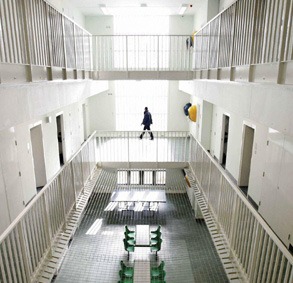Secular campaigners have launched a campaign urging Twitter to stop assisting with the censorship of supposedly blasphemous content in Pakistan, following reports that it has blocked messages as a result of complaints by users based in the country.
Last month, the New York Times reported that the social media platform had deleted a number of tweets reported by Abdul Batin, an employee of Pakistan Telecommunications Authority living in Karachi. The offending messages included cartoons of the Prophet Muhammad, images of burning Qur'ans and tweets from anti-Islam bloggers. A page on the Telecommunications Authority website provides a facility for Pakistani internet users to report any blasphemous content they come across online.
Twitter carries out such censorship in line with a policy introduced in 2012, under which it blocks tweets in order to comply with local laws in countries with free speech restrictions. The aim of the policy is to ensure that Twitter is not blocked in its entirety in such countries, something the site argues would be a greater blow to free speech than the censorship of a limited number of individual tweets. Twitter records all such blocked tweets on the Chilling Effects Clearinghouse, a US site which tracks instances of online censorship.
While, as the New York Times points out, Twitter has made the argument that this kind of censorship represents the lesser of two evils, a global coalition of secular organisations has launched a campaign calling on it to reverse the policy. The campaign, which is using the hashtag #TwitterTheocracy, argues that the policy of blocking tweets has led to Twitter being complicit in the suppression of free speech and legitimisation of Pakistan's draconian blasphemy laws.
Bob Churchill, communications officer at the International Humanist and Ethical Union (IHEU), said:
The idea that it is better to have censored access to social media and search, rather than none at all, is debatable. The blasphemy law in Pakistan is widely used to harass minorities, and to suppress free speech which, for example, legitimately criticises certain religious authorities or practices. Any company which gains business in a state by cooperating with laws like this is complicit.
It’s not just about censorship in Pakistan, or abstract concerns about freedom of belief. It’s about the growing number of people in jail on death row under permanent threat of execution, it’s about mob killings of those accused of ‘blasphemy’, it’s about a permanent state of fear that prevents questioning and progress for the religious and the non-religious alike.
I know Twitter posts take-down requests to another site but that’s not good enough. That’s not really taking a stand, not when the stakes are so high.
The coalition, which includes IHEU, the Richard Dawkins Foundation, the Atheists Alliance International, and the British Humanist Association, is urging people to sign a petition calling on Twitter "to uphold human rights-based standards of conduct, particularly when it comes to freedom of expression".
To read more about blasphemy laws around the world, see our World of Blasphemy series of blog posts.

